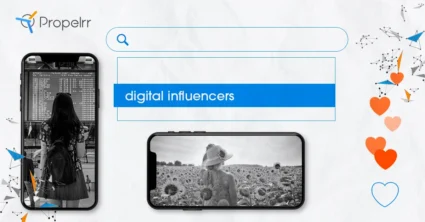How Digital Influencers are Shaping Search Engine Results
Author & Editor
Founder & CEO
Published on: Oct 1, 2012 Updated on: May 20, 2024

Table of Contents
Last September 29, 2012, I was invited as a speaker during the Digital Influencers Marketing Summit 2012 event, held at SMX- SM MOA, Philippines. It was attended by quite a number of bloggers, social media managers, SEO practitioners, and digital marketing agencies.
It was an awesome experience to see both old and new faces after sometime being out of the mainstream by choice, however; I felt rusty presenting to a fairly large audience. Given a 20-minute time frame, I was aware that I could not dissect everything I wanted to tell my audience about my slides thus; I was obliged to create a post in order to stress some key points I wanted them to know.

SEO starts with quality content.
Stressing this point for everybody to understand deserves another whole nine yards of touchdown. What will an SEO specialist optimize to drive conversion? Surely, a crappy content, hellish website navigation structure, generic photo, etc won’t bring you ROI at all.
SEO is about Google Search User Experience (SUX).
SEO is about how you will be found online. All your marketing and branding efforts should be resonated with how search engines understand your content. Schema, markups, authorship, maps, and all those sorts should be solidly crafted as they bring better search user experience.
Targeting Personas must be a habit.
Whenever you create a content, the first thing that should come into your mind is your target market/audience. You may have created the ultimate content in the whole world but if nobody is actually searching it, you won’t have traffic and readers to consume your content. Thus, it should be a habit to research first your target market and the variety of personas involved. Listen to their queries and questions, understand their lifestyle, and engage them in a real conversation before you jump into spending your resources (time, effort, money) in creating remarkable content that impact ROI.
Build a list of people who wanted to share your content.
Mavens, connectors, thought industry leaders, and digital influencers are known to be the “new messiahs” of marketing. I am sure you’ve read about the book, “Tipping Point” by Malcolm Gladwell. SEO uses that same principle in order to make your content “tip” and go viral.
SEO also utilizes different tools such as TweetReach, Klout, Google+ Statistics, FollowerWonk, and all other tools that can churn out numbers and data in order to supposedly know digital influencers’ relevance, resonance, and authority in a certain industry space.
RSS subscribers, Share Rate, and Scrape Rate as metrics are important gauges on how influential an influencer is. However; the ultimate metric of all is conversion. A digital influencer should bring value on the table, else, all is wasted.
SEO takes time to execute because it requires real deal strategies to engage, pitch, and make value propositions to digital influencers that were identified for engagement.
7. SEO is not sorcery.
It is neither an overnight gig nor a short-term campaign. It requires patience and careful study in order to have a long-term effect.
SEO is not sorcery.
Here is my presentation during the Digital Influencers Summit 2012. If you have more queries, just use the comments section below.
